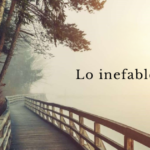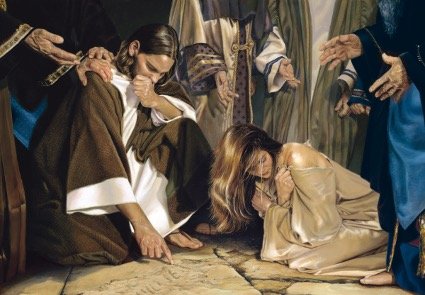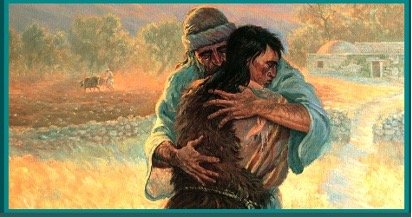
Holy Gospel of Jesus Christ according to Saint Luke 3,10-18
And the crowds asked John the Baptist, “What then should we do?”
He said to them in reply, “Whoever has two cloaks should share with the person who has none. And whoever has food should do likewise.”
Even tax collectors came to be baptized and they said to him, “Teacher, what should we do?”
He answered them, “Stop collecting more than what is prescribed.”
Soldiers also asked him, “And what is it that we should do?” He told them, “Do not practice extortion, do not falsely accuse anyone, and be satisfied with your wages.”
Now the people were filled with expectation, and all were asking in their hearts whether John might be the Messiah.
John answered them all, saying, “I am baptizing you with water, but one mightier than I is coming. I am not worthy to loosen the thongs of his sandals. He will baptize you with the holy Spirit and fire.
His winnowing fan is in his hand to clear his threshing floor and to gather the wheat into his barn, but the chaff he will burn with unquenchable fire.”
Exhorting them in many other ways, he preached good news to the people.
The Joy of the Walker
Luis CASASUS President of the Idente Missionaries
Rome, December 15, 2024 | III Sunday of Advent.
Zeph 3: 14-18a; Phil 4: 4-7; Lk 3: 10-18
The previous Sunday, the Gospel invited us to look critically at our relationship with God; not only the sins we commit, which is undoubtedly true, unless God is a liar (1Jn 1: 10), but the attention we pay to it, for example, if we dedicate our intelligence to meditate on the text of the Gospel, not as a Bible expert does, but using each episode as a light to see more clearly what I lack to be faithful, the talents I have not used for my neighbor, the opportunities to do good….
Today, we listen to what my relationship with others should be like in my daily life. In this sense, the messages of these two Sundays of Advent are complementary and confirm to us that love of God and true love of neighbor are necessarily linked.
Today, the simple and practical words of St. John the Baptist are addressed to my immediate relationship with every human being. The first thing that strikes us is that people of all kinds were moved to believe in the word of St. John the Baptist, including the hated tax collectors and the feared soldiers who occupied those lands. His testimony and teaching were convincing, they had the authority of one who lives as well as speaks.
This is very revealing and significant, for both people of good will and those who are aware of their evil deeds feel some form of division in our lives.
Erving Goffman (1922-1982) was a very original writer, who saw the life of people and society as a play. This impression had already been had by much older authors, such as Seneca (1st century), who wrote:
None of those you see dressed in purple is happier than those whom the stage fiction makes wear scepter and clamid; proudly in the presence of the people they walked with high and solemn platform shoes; but as soon as they leave the stage they take off their shoes and return to their stature […] Life is drama, where it does not matter how long it lasted, but how it was represented.
In today’s First Reading, we see historically, in the people of Israel, the distressing reality of this division: being the Chosen People and at the same time being able to fall into the most absolute corruption of kings, rulers, prophets and priests, as described at the beginning of Chapter 3. Certainly, living like this is unbearable, even if one tries to seek a euphoria, a joy, a happiness, which are nothing more than theatrical, superficial, feigned and artificial.
The Chosen People had abandoned God and yet, even in the hearts of those who have no faith or neglect it, his presence is sensed. The poem tends towards an Other, it needs him, it needs an interlocutor: it seeks him, wrote the German poet of Romanian origin, Paul Celan (1920-1970), an atheist who had a difficult existence and who ended up committing suicide. And he insisted: Every object, every human being, for the poet who leans towards the Other, is a figure of this Other.
The simple people who asked John were no different from philosophers or artists. They felt the desire to know this “Other”, who for them was the Messiah and, even if they were not always consistent, they sensed that they “had to do something” to get to know him. We know that, in reality, that “something” is dialogue, the way to unite ourselves to the divine persons, with an exchange of actions: our small signs of fidelity and their continuous inspiration, a dialogue that requires living the fast of the world and of desires, just as the Baptist lived it.
—ooOoo—
On this Sunday, the liturgy reminds us that joy does not come from a lack of worries. We will always have them, like the Philippians whom St. Paul addresses in the Second Reading… from prison. The apostle sheds light on the reason for the joy he shares with them: Rejoice in the Lord always; I repeat: rejoice!
The origin of our joy is the recognition that the Lord is near. This is the thought that accompanies the Christian and makes him affable, kind, generous with everyone.
This is already a powerful testimony to anyone, of any opinion or belief. The turbulent and brilliant German philosopher Friedrich Nietzsche (1844-1900), known for his denial of the existence of God (God is dead), also said: If you Christians would come out of church smiling, I myself could become a Christian. Therefore, one of the signs that each of us and in community have naturally given is to be people who rejoice in spite of all adversities and trials.
It was precisely what the archangel Gabriel conveyed to Mary: Rejoice, do not be afraid, you have received God’s favor. Only when we feel his call, his trust, can we overcome the fear and sense of impotence that so often invade us.
As St. Paul also affirms, it is a joy so profound that it surpasses all judgment, that is, all the reasons of the world and the anguish of those who do not keep their eyes on Providence, understanding ever better that everything that happens does not escape God’s plan. In this union with God, peace is received as a gift.
Perhaps a little story will help us to remember this:
Once upon a time there was a group of little frogs who had organized an athletics competition. The goal was to reach the top of a very tall tower. A large crowd gathered around the tower to watch the race and cheer on the contestants.
The race began…
No one in the crowd really believed that the little frogs would reach the top of the tower. They shouted: Too hard! They’ll never make it to the top. Impossible, the tower is too high.
The little frogs began to tumble down, one by one, except for the ones who, with a new rhythm, climbed higher and higher….
The crowd kept shouting: It’s too hard, no one will make it!
More little frogs grew tired and gave up…. but one continued, climbing higher and higher. This one would not give up. And it made it to the top.
Everyone wanted to know how this frog had managed such a feat.
Its secret? This little frog was deaf.
Yes, that frog was deaf to the voices of the world, but not to his deepest desire. In practice, we have many distractions; we often speak of hyperactivity, the hectic pace of life, the little time available or our limitations of character, well exploited by the devil … But the Gospel, as today St. John the Baptist and then Jesus when He speaks of the Works of Mercy, give us the key to overcome this division, this distance between our best intentions and the reality of our behavior: We must be as precise as we are for the affairs of the world.
We are not satisfied with saying: Today I have to eat, but we make a shopping list and then go to the market. It is not enough for me to recognize that I have to study, but I look for a suitable place, a timetable and a material that will allow me to do it.
Christ makes exactly this kind of warning, using a comparison of practical life:
Suppose one of you wants to build a tower, does he not first sit down and calculate the cost to see if he has enough money to finish it? If he lays the foundation and cannot finish it, all who see it will begin to mock him and say, “This man could not finish what he started to build” (Lk 14: 28-32).
That is why the Founders have established, each in his own way, a Rule, a specific way of using our time, our energy and, above all, the gifts received. In particular, there is always an Observance, which tells us how to use the time of our prayerful dialogue, the moments when we cease our activity to look to heaven in search of God’s will.
For the same reason, we must be specific and concrete in manifesting our faults. It is not the same to say: “My charity is not perfect” or “I lack much to love” as to declare: “I have raised my voice to my brother” or “I always avoid conversing with my sister Euphrasia”.
There is something in common in the indications of St. John the Baptist to the people who asked him: Approaching God or approaching our neighbor in His name requires giving up something we hold dear, requires, in some way, surrendering our life. Whether it is changing my plans, not letting my opinions drag me down (even if I don’t change them), changing my habits (my carefully worked out schedule) or confessing my mistakes and my ignorance with simplicity.
That is one of the meanings of John’s baptism: water cleanses, purifies, but it is also capable of killing, of eliminating our desire to use others as instruments, our permanent inclination to prove that we have better reasons than others.
This Sunday offers us an opportunity to better understand our vocation to holiness and mission: Having received the consolation of being forgiven, the grace of being able to walk with deep joy, we set out, we feel pushed and sent to share and spread the joy of serving others.
Today’s Gospel ends in a somewhat surprising way: we are invited to listen to something called “Good News”, but which consists of an inextinguishable fire that will burn away the chaff of our lives. It is not the announcement of the death of sinners, but of the death of sin in us. It is the arrival of freedom, the daily, permanent fulfillment of Ezekiel’s prophecy:
I will pour pure water upon you and you shall be clean, cleansed from the defilement of all your idols.I will give you a new heart and infuse you with a new spirit. I will take away your heart of stone and give you a heart of flesh. I will put my spirit in you and move you to follow my decrees and keep my laws (Ezek 36: 25-27).
_______________________________
In the Sacred Hearts of Jesus, Mary and Joseph,
Luis CASASUS
President













